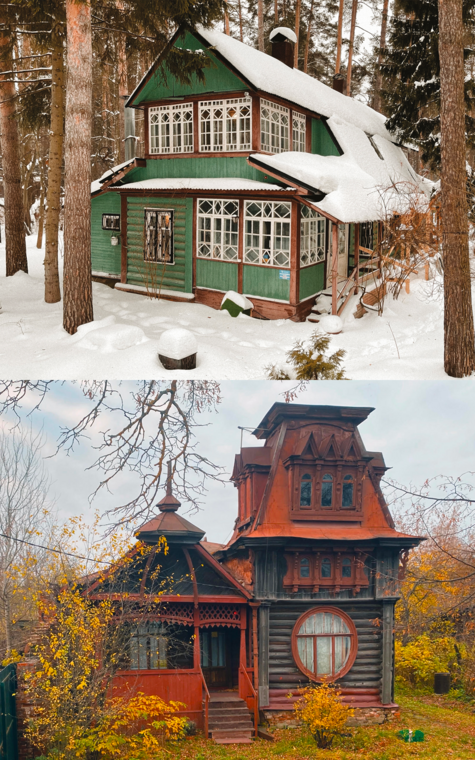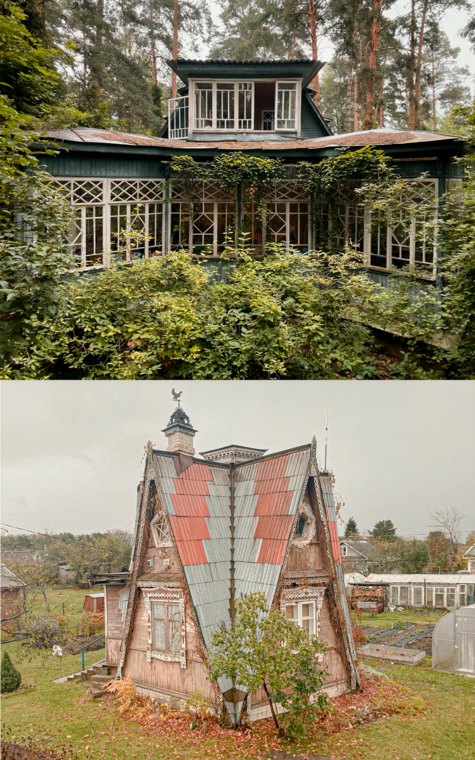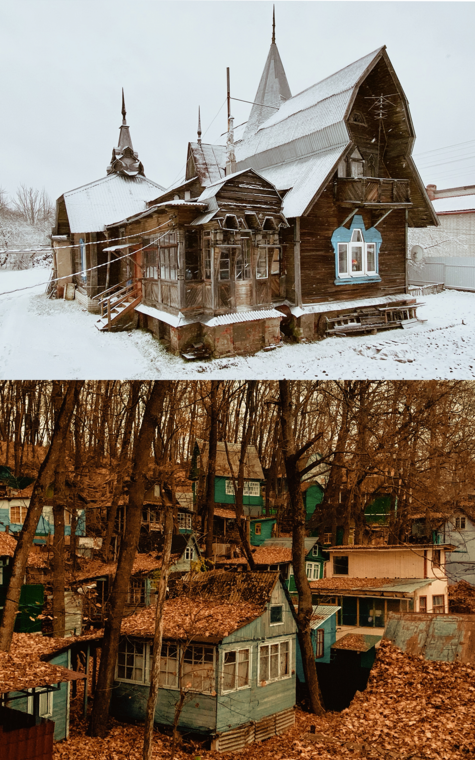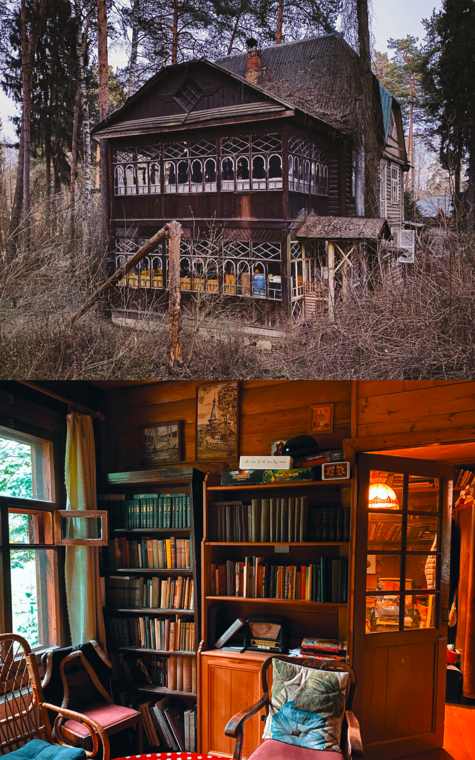In the 1990s, on Sundays in St. Petersburg, throngs of passengers flooded the exits of the Moskovsky railway station, pouring out into Vosstaniya Square. They would have carried bursting sacks of potatoes, bags of herbs, fresh peonies, even kittens. Most were returning from their countryside dachas—rustic cottages in colorfully painted wood, simple abodes designed for rural idylls.
Dachas date back to Peter the Great, who bestowed them on his courtiers after he began the construction of St. Petersburg, in 1713. He built his own Versailles—the magnificent Peterhof—15 miles west of the city, and the early dachas, which lined Peterhof Road, were opulent, imperial marvels designed for entertainment. After the Winter Palace was constructed, in 1762, Peterhof Road lost its prominence, but dachas started to dot the countryside at large.
It wasn’t until 1837, when the Tsarskoye Selo Railway was constructed, that dachas would become a thing of the middle class. These owners came to be known as dachniki—and included architects, entrepreneurs, developers, and landlords. As industrialization and cholera wrought havoc in the cities, the emerging Russian middle class sought escape from urban centers.
Though many of the cottages were destroyed after the Russian Revolution, a portion of private dacha ownership remained. During World War II, the cottages were places where people could avoid starvation. Poorer people were awarded them through land settlements.
Today, Russian homeowners are demolishing their dachas in favor of traditional houses, preferring brick over porous wood. In response, Fyodor Savintsev has crossed the country with his camera to capture the houses and their stories before they disappear. In Dacha: The Soviet Country Cottage, Savintsev has compiled photographs of the houses, their contents, and their eccentric owners—including Fyodor Dostoyevsky and Anton Chekhov. Here is a deep-rooted tradition that feels as intrinsically Russian as caviar and vodka. Indeed, there is no direct translation of “dacha,” which loosely means “to give.” —Elena Clavarino

Dacha: The Soviet Country Cottage is out now from Fuel Publishing
Elena Clavarino is a Senior Editor at air mail





